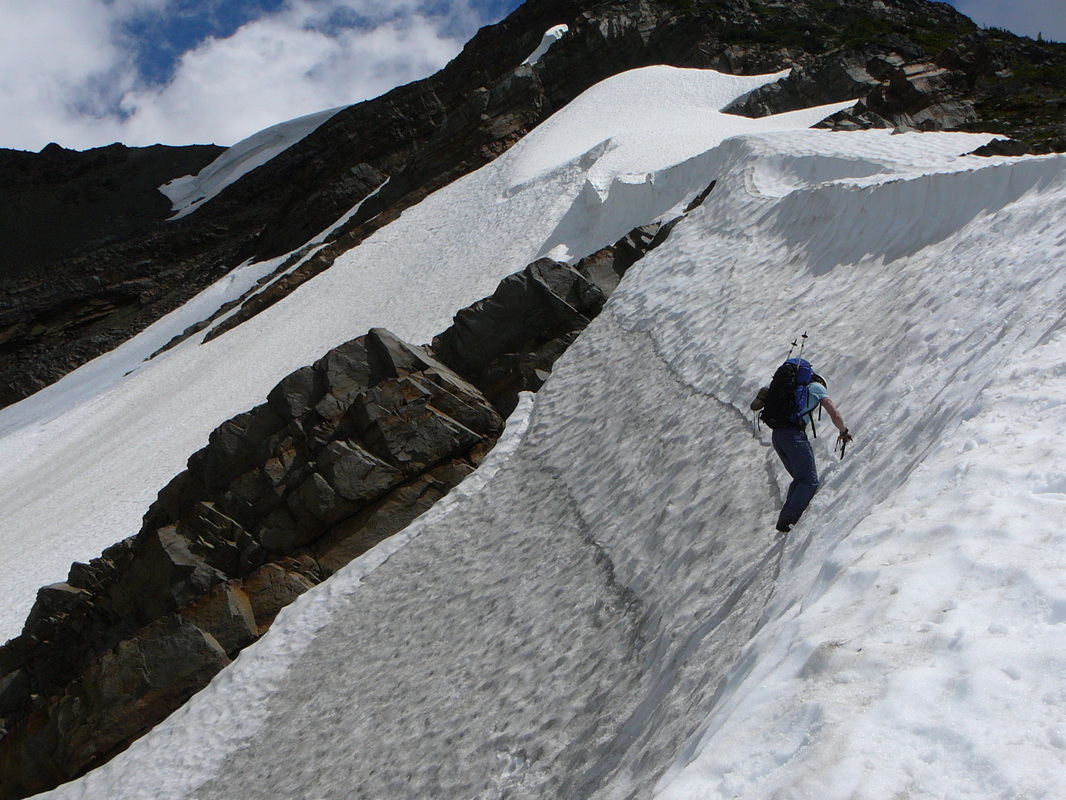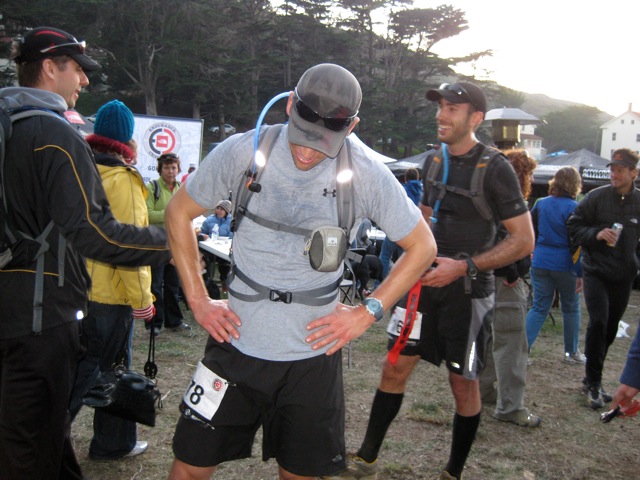As discussed in Expect the Unexpected, effectively training for extended forays (5 days+) into the mountains or wilderness in search of game has few parallels in the conventional sporting or athletic sense. The demands on the body are uniquely diverse and can cover everything from pure brute strength to ultra-endurance. In most athletic endeavours training specificity is paramount to success but for mountain hunters the very nature of training with specificity is to train as non-specifically as possible. All energy systems must be challenged, whole body movements trump isolated movements (while taking into account structural or functional deficits – more on this in a later article), and time in the field must be prioritized.
Yet before we consider any of these factors we must address the single most important and often most neglected component of one’s training program: the mind. There’s a reason we listed psychological fitness as the number one training principle for the hunter athlete in Expect the Unexpected. As Mark Twight, founder of Gym Jones and world renowned climber and mountaineer put it, “the mind is primary” and we could not agree more. However this is not an article about how to develop “grit” or mental toughness, there are few mountain hunters that lack in this department. This is about sharpening and honing your psychological fitness. And no different than our muscular or cardiovascular systems, our mental fitness can and should be trained.
 So why is this so important? Most of us have either witnessed or experienced personally the reality of mind over matter. Spend a night around just about any campfire and you’re bound to hear a story about someone suffering through some form of physical hardship they never would have imagined remotely possible before being thrown into the fire. But relying on grit and grit alone to get us through day after day of physical and mental hardship is at best optimistic and at worst can produce disastrous results. Do you know how your body responds without food for more than 12 hours? Have you relied on the same training program year in and year out yet perennially feel completely destroyed physically and mentally by the third day of your trip? Do you truly know how your body and mind perform under extreme fatigue? Have you purposefully slept only a few hours and then tried hiking the steepest trail you can find? Have you ever spent a night in the woods or wilderness alone? Have you tried packing 100 plus pounds off-trail in the dark with only the paltry beam of your headlamp to light the way in your preparation before the actual hunt?
So why is this so important? Most of us have either witnessed or experienced personally the reality of mind over matter. Spend a night around just about any campfire and you’re bound to hear a story about someone suffering through some form of physical hardship they never would have imagined remotely possible before being thrown into the fire. But relying on grit and grit alone to get us through day after day of physical and mental hardship is at best optimistic and at worst can produce disastrous results. Do you know how your body responds without food for more than 12 hours? Have you relied on the same training program year in and year out yet perennially feel completely destroyed physically and mentally by the third day of your trip? Do you truly know how your body and mind perform under extreme fatigue? Have you purposefully slept only a few hours and then tried hiking the steepest trail you can find? Have you ever spent a night in the woods or wilderness alone? Have you tried packing 100 plus pounds off-trail in the dark with only the paltry beam of your headlamp to light the way in your preparation before the actual hunt?
These are just a few examples of what “training the mind” can entail but the harsh reality of mental training or psychological fitness is there is no single, definitive approach to achieving a “fit” mind. Sure there are all sorts of books and resources available on sports psychology and optimizing performance but these are generally clichéd and inapplicable to the outdoorsman or woman. Human psychology is a deep, dark rabbit hole and the bulk of the prevalent theories are just that, theories. In no way do we profess to be experts on the subject of human psychology but we have researched this topic in depth and know there is enough debate on the individual intricacies of motivation, performance, and the ability to endure prolonged physical hardship that there is simply no definitive “program” for training the mind.

Which brings us full circle, back to the question of how to exactly “train” our psychological fitness? As we said earlier there is no definitive “ten step”, or twelve week program. The bottom line is only you can assess your own psychological fitness, or lack thereof. What we have done below is laid out a simple blueprint to first assess and then train your mental fitness on both a micro and macro level.
The Blueprint:
1) Conduct a “hot wash” assessment of last season or your last extended trip:
- A mainstay of many special operations and elite law enforcement units, the “hot wash” is a rigorous and objective “after action” analysis of what went right, what went wrong, what should be sustained and what needs fixing. Many of us go through a similar process with our gear but do you do the same with yourself? If you’re being truly honest with yourself, this should be an enlightening experience and we’d ideally suggest sitting down to actually write this self-assessment out. Were you as prepared physically as you wanted to be? If not, why? Did you train your ass off but still suffered for a good portion of your hunt? If so why? Did you make poor decisions in the field? Did you miss that one shot opportunity? Did you pass on an animal because you couldn’t identify age or gender accurately? These are just examples of the types of questions you can ask yourself when going through this self-assessment. The key here is nothing is off-limits.
2) Do something “uncomfortable” on a daily basis:
- This is a micro level technique for battling the reality of being surrounded by “comforts” and the vicious cycle of mental weakness this induces. This can be as simple as changing your run route to include that hill you constantly find ways to avoid, or trying a new lift or program at the gym that you’ve thought about but never bother with when push comes to shove. Routine is easy and efficient, change is not. But we are an adaptable species and we should strive to hone our adaptive skills. This is not exclusive to the physical realm either. It could involve your business or personal life as well, in fact on a pure mental level this is where most people have the most to gain. Doing something small that makes you nervous or uncomfortable on a regular basis will start to spill over into all aspects of your life.
3) Pick a “crucible” event or experience each and every year, in advance of your trip:
- This is a macro level technique, one that your pre-season should center around. A crucible is defined as a severe test or situation in which concentrated forces interact to cause or influence change or development. In short, something so mentally and physically transformational you are a different person on the other side. For many, their first crucible is their first extended backcountry hunt. It redefines what is both physically and mentally possible and resets one’s personal expectations. But for many, that happens once a year or worse, once every few years. Why wait until your hard earned trip? Why not push your mental and physical limits on an annual basis irrespective of your hunt plans? Each person’s crucible will differ, for some it could be signing up for an endurance event well beyond their preconceived notions of “possible” or through hiking a four day route in two. For other’s it may simply mean spending a night in the wilderness entirely alone. The key is this event or experience needs to be so damned scary that you are held accountable. Something so daunting that it borders on “impossible” and focuses you like a beacon on the horizon. Put it in your calendar, tell people about it, put your hard earned money on the line. If people don’t ask “Are you crazy?” when you tell them about it, it’s probably not scary enough.
In Summary:
As clichéd as it is, this is as much about the journey as it is the destination. In most cases as you delve deeper and deeper into this topic your “program” can and should evolve with you. It should also be noted that separating the mental and physical aspects of training is both simplistic and unrealistic in that pushing yourself physically is one of the most effective ways to break down barriers mentally, but it is our stance that more attention needs to be paid to the strict mental aspects of your training program in preparation for serious mountain and wilderness hunts. For most people, an extended backcountry hunting trip will push you to levels you never thought possible.
Why not push the boundaries of “possible” in advance of your hard earned trip?
Adam Janke
Editor in Chief
FMS 1 & 2
Matt Thompson
Field Editor
FMS 1

